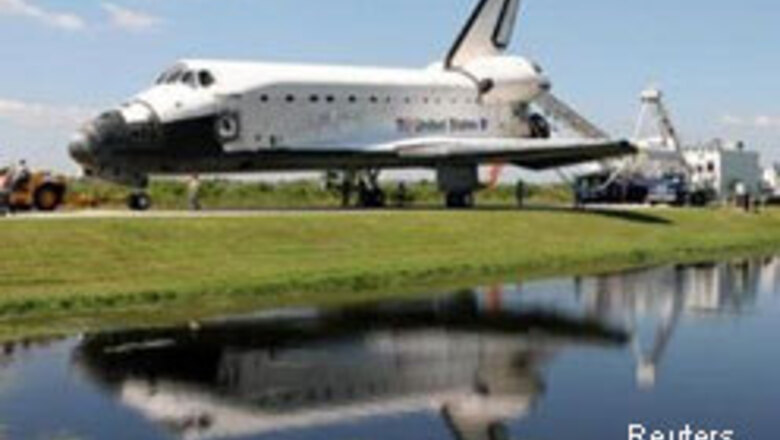
views
Cape Canavarel (Florida): A piece of space debris punched a small hole in one of space shuttle Atlantis's radiator panels during its recent 12-day space flight,
NASA said on Thursday.
Damage from debris has been NASA's top safety issue since the destruction of shuttle Columbia in February 2003, when insulating foam came off the ship's fuel tank during launch and punched a hole in the shuttle's protective heat shield.
The radiator damage, which measures slightly more than one-tenth of an inch in diameter, was found during routine post-landing inspections at the
Kennedy Space Center in Florida, NASA spokeswoman Jessica Rye said.
Atlantis landed safely on Sept 21 and the damage went undetected during its flight despite three intensive inspections.
Those assessments focused on the shuttle's heat shield, and while the radiator is a critical system, the metal panels are not exposed during the ship's fiery plunge through Earth's atmosphere for landing.
The panels unfold from the payload bay doors to cool the ship during flight.
"Radiators are potentially dangerous because they affect life support systems and temperature controls," said William Schonberg, a space debris researcher and a civil engineering professor at the University of Missouri.
Since losing Columbia, NASA has developed a suite of instruments to assess how well the shuttles fared during the supersonic climb to orbit.
Columbia was destroyed and its seven crew members killed because a piece of foam fell off the fuel tank during launch and hit the wing, breaking a hole in its heat shield.
As the shuttle flew through the atmosphere for landing, superheated gases tore into the breach and ripped the ship apart.
In addition to in-flight inspections to check for damage during launch, NASA redesigned the faulty tank and equipped the space station as an emergency shelter in case another shuttle should suffer Columbia-like damage.
NASA last year also mandated an inspection late in the mission to check for damage from tiny meteoroids.
After seeing debris flying in the vicinity of the shuttle, NASA postponed Atlantis' homecoming a day for a second survey. However, the damage was not detected.
It was not known if the radiator panel damage was related to the flyaway objects.
Atlantis' mission, which ended with a safe touchdown at the Kennedy Space Center, was NASA's first to resume space station construction since the Columbia disaster.




















Comments
0 comment